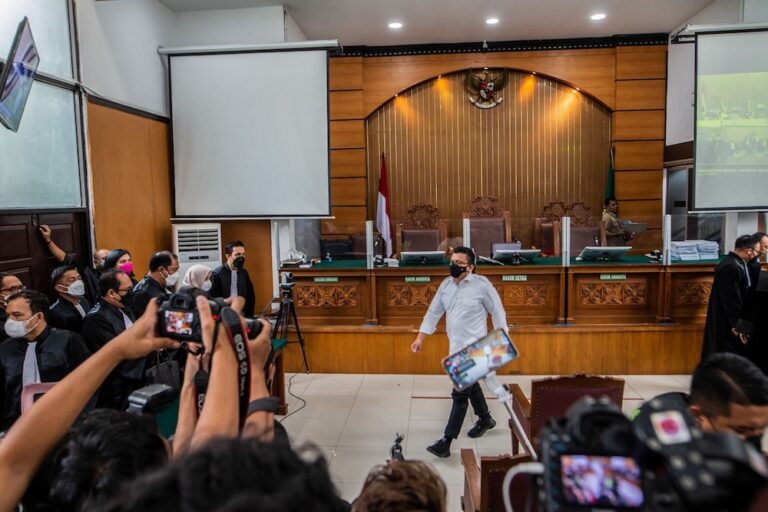Human Rights Watch called for concerns to be raised about political prisoners during talks on the US-Indonesia Comprehensive Partnership.
(Edited and condensed)
(Human Rights Watch/IFEX) – Jakarta, September 2, 2012 – United States Secretary of State Hillary Clinton should raise concerns about religious minorities and political prisoners with the Indonesian government during an upcoming visit to Indonesia, Human Rights Watch said today. Clinton will be in Jakarta on September 3, 2012, for talks on the US-Indonesia Comprehensive Partnership.
“Secretary Clinton should press the Indonesian government to take concrete steps to address rising religious intolerance,” said John Sifton, Asia advocacy director at Human Rights Watch. “Indonesia needs to recognize that oppressive laws and policies against religious minorities fuel violence and discrimination.”
The authorities have used the 1965 blasphemy law and laws on criminal defamation to prosecute members of religious minorities in violation of their basic rights. Some members of minority groups now facing criminal trials under these laws include:
•Tajul Muluk, a Shia cleric arrested on April 13, who is on trial at the Sampang district court, East Java, for blasphemy, which carries a penalty of up to five years in prison, and extortion by threatening defamation, which carries a penalty of up to a year in prison, under article 335 of the Criminal Code for alleged “deviant teachings.” The prosecution resulted from a January 1 fatwa from the Indonesian Ulema Lemma Council (MUI) in Sampanghad that described Tajul Muluk’s teachings as “deviant.”
•Alexander An, a civil servant alleged to be an atheist, who was arrested on January 18 and is on trial at the Sijunjung district court, West Sumatra, for blasphemy and inciting public unrest, which carries a penalty of up to six years in prison under the Information and Electronics Transactions Law, for several posts on his Facebook account.
•Hasan Suwandi, a guardian of the Ahmadiyah Cipeuyeum mosque in Cianjur, who is on trial at the Cianjur district court, West Java, for criminal defamation under article 310 of the Criminal Code, which carries a penalty of up to two years in prison. The police brought the charges after Suwandi was quoted in the Radar Banyumas newspaper saying that the Bojongpicung police chief had given permission for an Ahmadiyah mosque to be reopened.
Criminal defamation laws in Indonesia allow powerful people, including public officials, to bring criminal charges against activists, journalists, consumers, and others who criticize them, and should be repealed, Human Rights Watch said. Criminal defamation charges have been filed against people who have held public demonstrations protesting corruption, written letters to newspaper editors complaining about fraud, registered formal complaints with the authorities, and published news reports about sensitive subjects. Recently, the criminal defamation laws have been used to target members of religious minorities.
The detention of political prisoners remains an important human rights concern in Indonesia, Human Rights Watch said. Indonesia is holding nearly 100 activists from the Moluccas and Papua for peacefully voicing political views, holding demonstrations, and raising separatist flags. These prisoners are usually convicted of treason (makar) and “inciting hatred” (haatzaiartikelen).
The political prisoners include a former Papuan civil servant, Filep Karma, serving a 15-year prison term in Abepura prison, and a Moluccan farmer, Ruben Saiya, serving a 20-year prison term in Nusa Kambangan Island prison. In November 2011, the United Nations Working Group on Arbitrary Detention issued an opinion that the Indonesian government was violating international law by detaining Karma, and called for his immediate release.
Clinton should urge the Indonesian government to release immediately and unconditionally all political prisoners held for the peaceful expression of their political views and call on Indonesian authorities to provide adequate health care for all prisoners.
“The US should remind the government that persecuting peaceful political activists is an injustice that violates international law,” Sifton said.


